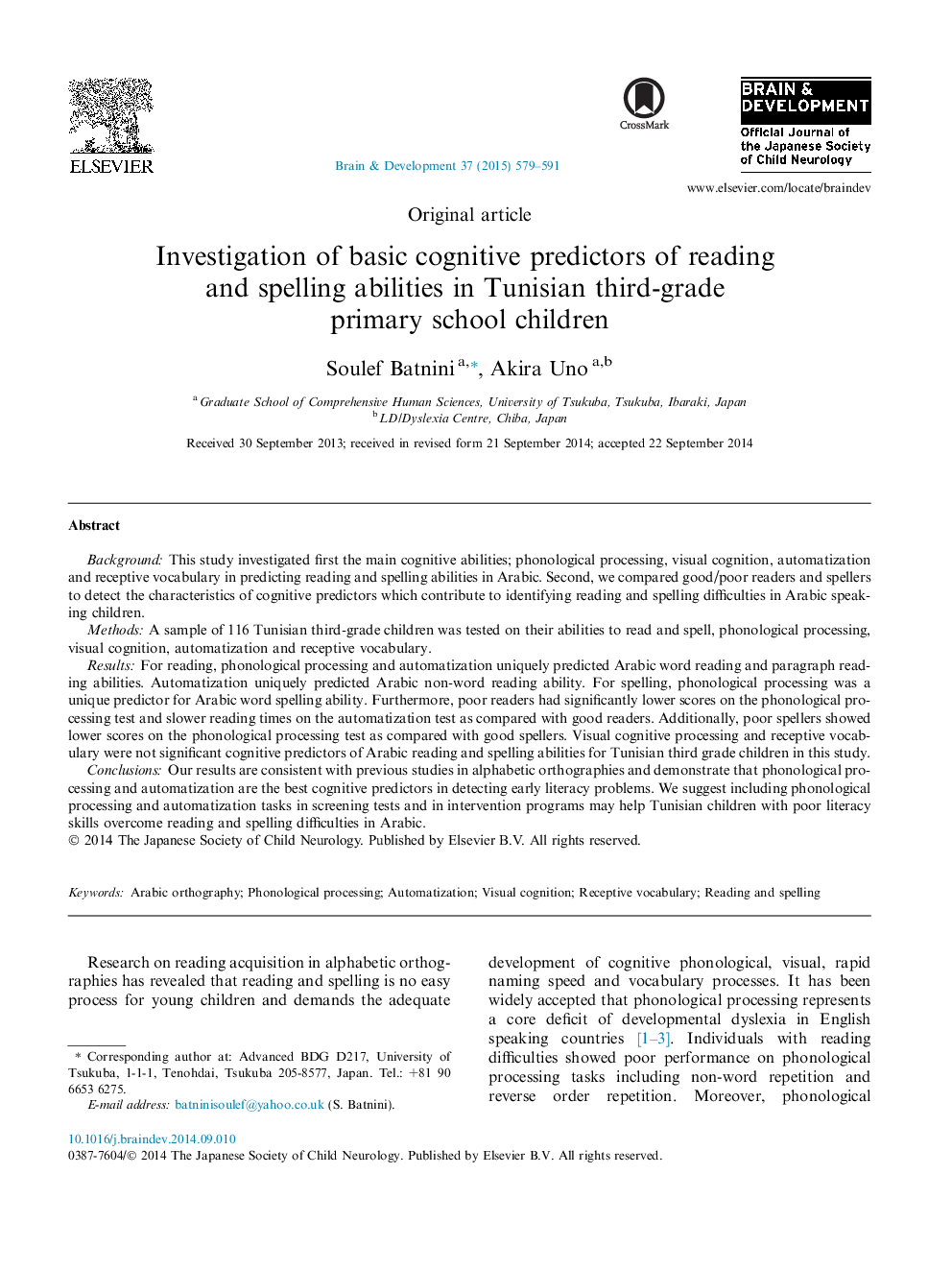| Article ID | Journal | Published Year | Pages | File Type |
|---|---|---|---|---|
| 3036999 | Brain and Development | 2015 | 13 Pages |
BackgroundThis study investigated first the main cognitive abilities; phonological processing, visual cognition, automatization and receptive vocabulary in predicting reading and spelling abilities in Arabic. Second, we compared good/poor readers and spellers to detect the characteristics of cognitive predictors which contribute to identifying reading and spelling difficulties in Arabic speaking children.MethodsA sample of 116 Tunisian third-grade children was tested on their abilities to read and spell, phonological processing, visual cognition, automatization and receptive vocabulary.ResultsFor reading, phonological processing and automatization uniquely predicted Arabic word reading and paragraph reading abilities. Automatization uniquely predicted Arabic non-word reading ability. For spelling, phonological processing was a unique predictor for Arabic word spelling ability. Furthermore, poor readers had significantly lower scores on the phonological processing test and slower reading times on the automatization test as compared with good readers. Additionally, poor spellers showed lower scores on the phonological processing test as compared with good spellers. Visual cognitive processing and receptive vocabulary were not significant cognitive predictors of Arabic reading and spelling abilities for Tunisian third grade children in this study.ConclusionsOur results are consistent with previous studies in alphabetic orthographies and demonstrate that phonological processing and automatization are the best cognitive predictors in detecting early literacy problems. We suggest including phonological processing and automatization tasks in screening tests and in intervention programs may help Tunisian children with poor literacy skills overcome reading and spelling difficulties in Arabic.
